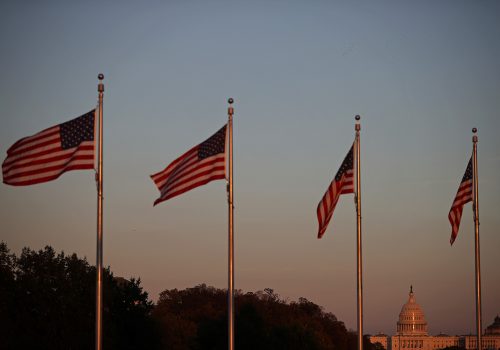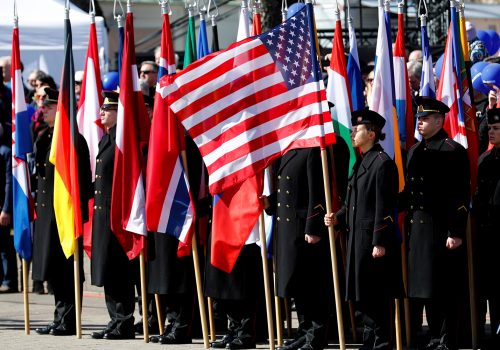November 6, 2020
America’s commitment to democracy must prevail at home and abroad
If any doubt remained, US President Donald J. Trump’s baseless and authoritarian November 5 statement from the White House, attacking the integrity of the 2020 elections, cleared it up: Democracy in America—the very essence of what has made us great at home and abroad—is undergoing a serious stress test.
While former Vice President Joe Biden appears headed for a victory in the presidential election, the race has revealed a nation closely divided, with emotions so high that many Americans question whether the country can pull itself together. They’re not alone. America’s friends abroad are also asking whether the United States will be able, or willing, to resume its role as champion of an international system informed by rules and democratic values (as Biden has urged). To pass the existential test now before us, we Americans must not only hold fast to our best values at home, but also uphold our commitment to reflecting those values as we look abroad.
America’s traditional values-based, outward-looking grand strategy comes from a deep source: Its uncommon national identity—not an ethnic state bound by blood, but rather, as President Abraham Lincoln redefined it during the Civil War, “a new nation, conceived in liberty and dedicated to the proposition that all men are created equal.” This new kind of nation sought to play a new kind of role in the world.
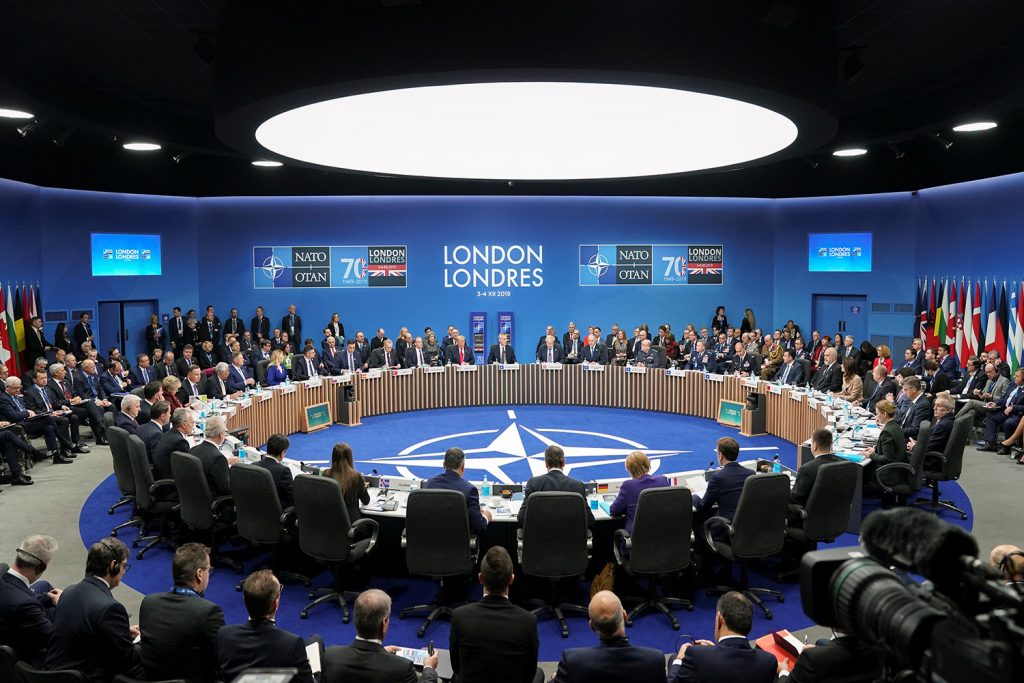
We Americans must not only hold fast to our best values at home, but also uphold our commitment to reflecting those values as we look abroad.
The central idea of US grand strategy–articulated first by Lincoln’s former aide, Secretary of State John Hay, and President Teddy Roosevelt, and put into effect by President Franklin Roosevelt and President Harry Truman—was that America’s interests and values would advance together. Franklin Roosevelt found the key to defeating the Great Depression—the progressive reforms of the New Deal, the democratic alternative to fascism and communism—and applied that liberal confidence to his 1941 Atlantic Charter that outlined America’s vision of a post-World War II world: an open, rules-based international system that would favor democracy while generating sustainable prosperity.
Those American leaders weren’t driven by mere “idealism” or “elitist” sentiment. The country’s grand strategy was based on a canny assessment that an open world would play to US strengths: industrial and technological advantage, plus agricultural abundance. The United States set out to make the world a better place—and get rich in the process. Such a system, however, would work for the United States only if it also worked for others. So the US also set up multilateral institutions—the International Monetary Fund, World Bank, General Agreement on Tariffs and Trade (GATT, now the World Trade Organization), NATO, the United Nations— designed (in progressive/New Deal fashion) to create rules and structures to avoid the chaos and rivalries that had generated two world wars, Nazism, and Communism.
The resulting US-led system was far from perfect. It resulted in failures, inconsistencies, bad deals, and blunders. The United States made many of them. But it also produced three generations of great-power peace, the defeat of Soviet communism without general war, and growing prosperity for billions of people. Compare the results of American grand strategy not with an ideal, or even with the more extravagant US claims about it, but against the 20th-century competition.
US grand strategy had (and has) critics from all sides. Those on the left have called out the United States for its hypocrisy and occasionally condemned the strategy as mere scaffolding for cynical American domination. Critics on the right and some in the center (from isolationist or realist schools of thought) have argued that the United States has no business leading a rules-based global system in the first place. Doing so, some have maintained, only leads to over-militarization and over-extension, or the US getting suckered into bad trade deals by wily European or Asian countries.
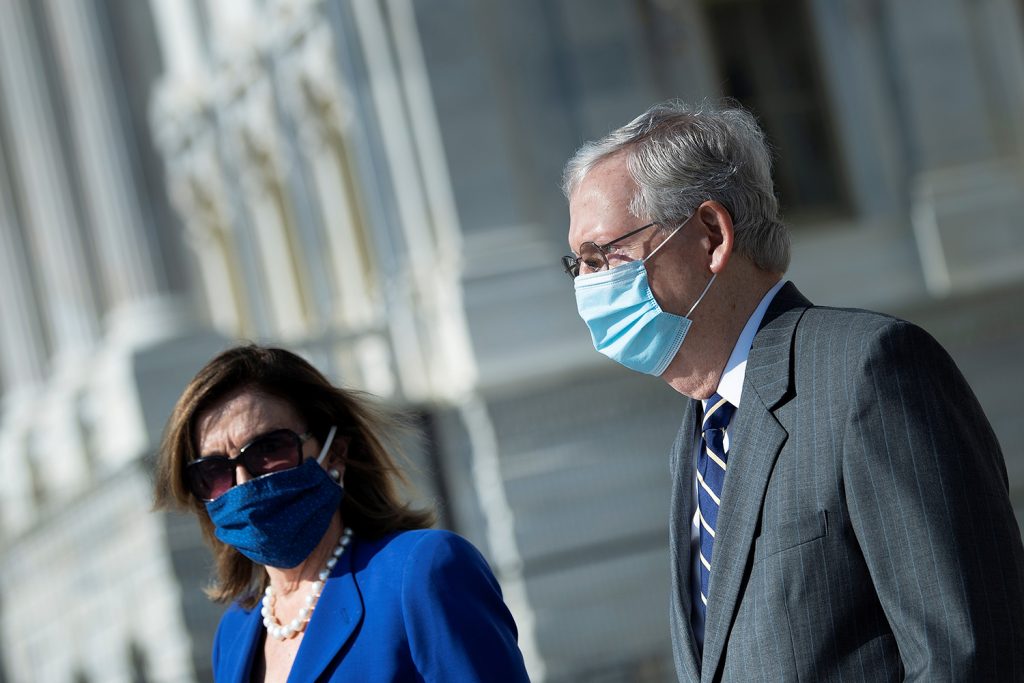
Policymakers always need skeptics whispering in their ear about risks and limits, especially when they seek to accomplish big things.
The critics have often had a point, especially about bad choices made within the framework of a larger strategic design. No grand strategy, even the best, will protect against dumb policies. But the Vietnam War, to pick one of the dumbest, did not prove that US Cold War strategy was a failure. It proved instead that even solid theory (containment policy) is no guarantee of success in particular situations. Instead what’s essential is realism, care, caution, and a proper estimation of assets and liabilities. Policymakers always need skeptics whispering in their ear about risks and limits, especially when they seek to accomplish big things.
But the alternatives that many critics of US grand strategy have suggested don’t look especially promising. If the United States weakens or dismantles alliances like those with NATO or with South Korea (as Trump has suggested in unfiltered moments), are we likely to be happy with the consequences? Is the United States more or less likely to manage China’s predatory trade policies if we spend our time trashing trade relations with Asian and European democracies? Or eliminating multilateral norms to which we might wish to appeal? It may be unfair to ascribe to more thoughtful realists Trump’s more extreme expressions. But Trump’s posturing didn’t come from nothing. It reflected ideas circulating as alternatives to US grand strategy as it has existed since 1945.
Value-free spheres of influence, much admired by certain kinds of realists, actually don’t tend to be stable, if centuries of European history are any guide. In such an arrangement with China or Russia, what principles and which friends would the United States abandon? And how would the United States benefit from such a deal? One thing I learned in forty years of diplomatic service is that policies should be judged not by their well-crafted justifications but by their impact on the ground, where it counts. Lines drawn on maps in far-away meeting rooms have consequences.
The United States is best off sticking to the pursuit of its interests through the advancement of its values. But it needs to do so in new ways to meet new challenges.
In a broad sense, Franklin Roosevelt and Harry Truman applied the New Deal’s domestic principles to their global strategy: strengthening democratic governance through new regulatory norms and systems to redress destructive social and economic imbalances. In that sense, the New Deal led to the Marshall Plan.
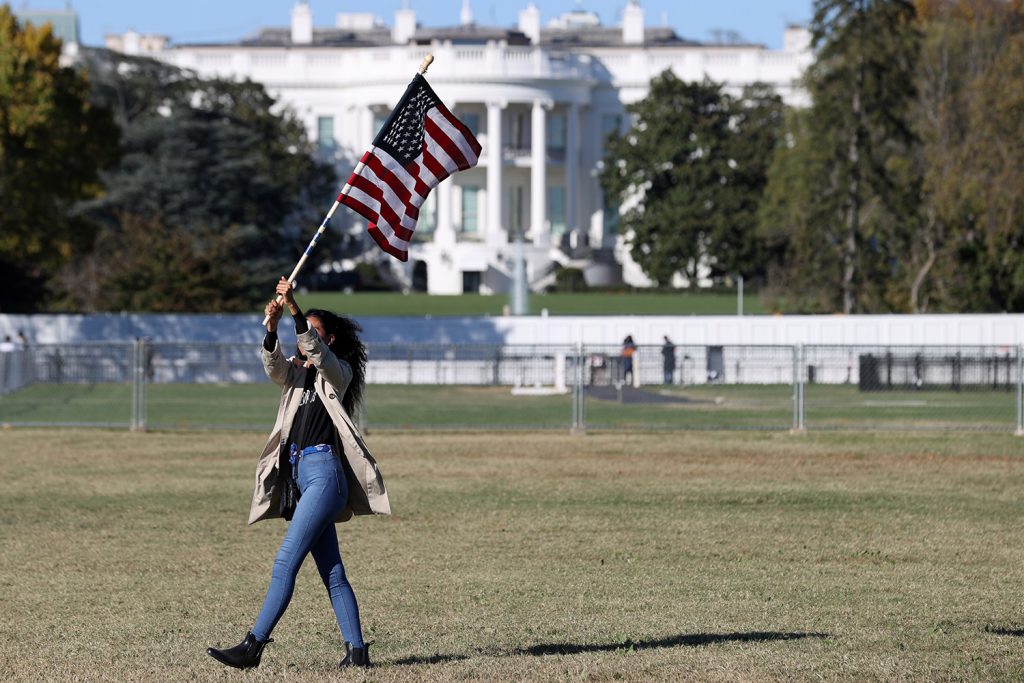
The United States is best off sticking to the pursuit of its interests through the advancement of its values.
Today, as then, democratic and social renewal at home can inform a rebooted US grand strategy abroad. What might that mean?
Facing a worsening pandemic, the United States must build international solidarity to develop and share vaccines and therapeutics. Facing the threat of global depression, the United States should lead its democratic allies in a massive effort to reignite economic growth, with benefits more widely shared. Facing massive income disparities (that have reached pre-New Deal levels in the United States), the United States needs to find the balance between nurturing capitalism that creates wealth and safeguarding the rights of citizens to enjoy common prosperity. Facing new challenges from authoritarian powers, the United States and its democratic allies need to join forces to contend with Russia’s destructive aggression and with China’s exploitation of the international trading system from which it has gained so much.
Facing waves of nativism and nationalism, the democratic world should recommit to its best civic traditions; the United States needs to remember and live out Lincoln’s redefinition of the American nation. Facing threats to the global commons from climate change and environmental degradation, the United States must once again assume its share of global responsibilities, including the development of new clean-energy technologies (in true Yankee fashion, making good money as it does so).
In 1941, on the verge of international leadership, the United States articulated its aims in the Atlantic Charter. That was a document for its time, signed by the leaders of the United States and the United Kingdom. An incoming Biden administration could benefit from a better, broader charter of principles to reboot US foreign policy as the democratic world seeks to emerge from the coronavirus era and as the US emerges from the Trump presidency. As a candidate, Biden called for a summit of democracies. UK Prime Minister Boris Johnson has suggested strengthening the “D-10” group of leading democracies. Many European governments have made clear that they don’t like the prospect of a world without US leadership and are willing to enlist in efforts to foster a new, democratic solidarity. Given the damage inflicted by the Trump presidency, a fresh start will be needed.
With this in mind, in 2019 the Atlantic Council organized a group of foreign-policy leaders from all continents who issued a “Declaration of Principles for Freedom, Prosperity, and Peace,” inspired by the Atlantic Charter but broader in scope to reflect 21st-century challenges. Its seven principles sought to balance concerns of the political left and right: “freedom and justice,” “democracy and self-determination,” “peace and security,” “free markets and equal opportunity,” “an open and healthy planet,” “the right of assistance,” and “collective action” to advance these principles.
The Declaration was an invitation and a sketch for democratic leaders around the world willing to push back against forces of aggression and destruction, and to address the problems that have generated the dissatisfaction fueling Trump and leaders like him. It draws on the best traditions of the United States from the 20th century, starting with the recognition of the link between values and interests at home and abroad. It attempts, as did the Atlantic Charter, to state what the world’s core democracies stand for.
This is the time to recommit to these principles and, thus inspired, fix past mistakes. The challenges won’t get better on their own. US retreat—from our best values at home or abroad—won’t help anyone, least of all Americans. So, we’d better learn fast.
Daniel Fried is the Weiser Family distinguished fellow at the Atlantic Council. He was the coordinator for sanctions policy during the Obama administration, assistant secretary of State for Europe and Eurasia during the Bush administration, and senior director at the National Security Council for the Clinton and Bush administrations. He also served as ambassador to Poland during the Clinton administration. Follow him on Twitter @AmbDanFried.
Further reading:
Image: President Abraham Lincoln's Gettysburg Address is seen inscribed in stone at the Lincoln Memorial in Washington, U.S., July 30, 2020. REUTERS/Leah Millis
